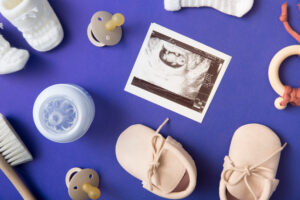When premature newborns develop complications, they are cared for in a special hospital unit known as NICUs. Preemies share many of the same needs as full-term babies, yet their bodies and minds are less developed. Here are some important points:
Baby brains and lungs need extra oxygen in order to function optimally.
He’s (still) smaller.
Assisting with premature babies can be daunting at first, as you adjust to caring for a preemie without medical professionals close by. But don’t give up! Even small preemies become more like full-term newborns over time thanks to excellent medical treatment.
Infants born prematurely will still be smaller than their peers and take longer to learn how to breastfeed or bottle feed, but will eventually catch up. For several years they will also need to visit specialists to monitor their growth, development and vision, hearing and speech abilities.
As soon as your preemie is discharged from hospital, ask his/her doctor whether any special equipment will be required at home, such as an oxygen tank and monitor or intravenous line for nutrition. In some hospitals there are community neonatal nurses who will come directly to your house with this equipment and show you how to use it. Inquire if there are resources in your local community available to parents of babies on home oxygen; some towns provide preferential parking or have groups dedicated to premature baby families.
He gets tired faster.
Finding a pediatrician experienced with premature babies and any related equipment such as oxygen or tube feeds may be essential to their care, often someone from your hospital care team can recommend one.
Preemies don’t move through their sleep-wake behavioral states as easily, often skipping over or staying longer in one state than usual. Watch for cues such as yawning, spitting up, coughing, hiccuping, groaning or stretching from them that might indicate they need help to transition through their states.
As these babies will likely still need ventilation or IV support, their reaction may not be immediate to touch. But you can try holding and gently massaging their face – or singing and talking to them depending on their health condition.
He’s more susceptible to germs.
Premature babies’ immune systems were not fully developed before birth, making them more prone to infections than full-term babies. Therefore, it is vital that you limit public places and visitors, do not smoke in or near your home, and wash hands frequently when handling him or her.
As premature babies can have sensitive skin that may lead to rashes and eczema, it’s advisable to use hypoallergenic soap, shampoo and lotion. Also look for products without dyes in them that could reduce risks.
Your baby will receive a customized growth chart to track his development; however, his growth may differ from a typical newborn until closer to his due date (or later). They’ll also be monitored in a developmental clinic and may require speech, physical and/or occupational therapy once released from hospital – find out which services are offered locally!
He’ll need extra equipment.
Preemies have an increased risk for eye disease known as Retinopathy of Prematurity. Your doctor may suggest having your baby regularly see an eye specialist to ensure his eyes stay in good condition.
Your infant likely has a monitor at home that can be used to detect breathing pauses (known as apnea). Anyone responsible for their care at home must know baby CPR in order to ensure optimal outcomes for your infant’s wellbeing.
Parents often feel disconnected from their babies when they’re in incubators with wires and strange alarming sounds surrounding them. Ask the NICU team for guidance in using any equipment your baby might have at home and practice until you feel more at ease using it.
Once your baby is home, make sure they get an appointment with a pediatrician within two days to review his/her NICU discharge plan and advise on follow-up care. Also consult your pediatrician about visiting restrictions; those who are sick shouldn’t visit and all visitors must wash their hands prior to touching your premature newborn.
He’ll need more monitoring.
Preemies require frequent monitoring because their bodies haven’t had enough time to develop fully. Preemies also tend to become exhausted more easily and don’t sleep as deeply or long. That can leave them susceptible to infections such as RSV that affect breathing organs; their immune systems weren’t fully formed prior to birth so may struggle against such illnesses more readily than older babies would.
Patients suffering from central apnea tend to have more episodes, where breathing temporarily stops for 90 seconds or more. Unfortunately, these episodes don’t always set off the alarm on a monitor alarm system and it can be hard to know when they occur.
Premature babies in need of additional nutrition often require total parenteral nutrition (TPN) or nasogastric tube feedings in order to catch up with their growth rates and keep up. Unfortunately, some are unable to self-feed effectively and require additional support in order to catch up with their growth rate.
He’ll need more help.
Your baby may need special nutrition before returning home from the hospital. Preemies typically need an NG tube (passing nutrition through their nose) or G-tube (gastrostomy tube surgically placed into their stomach), or total parenteral nutrition (TPN), a liquid solution containing all their needs. You might also have an oxygen tank and/or heart monitor at home; make sure all caregivers who will care for him/her know how to use these tools properly.
Your baby may require changing multiple times daily, but only after they wet it. A wet diaper is an indication that their milk or formula consumption has reached adequate levels; additionally, keeping on a consistent feeding and sleep schedule as well as seeing six wet diapers daily is ideal.
Early babies may be more prone to skin rashes and infections than babies born on time. To minimize risks, select hypoallergenic soap, shampoo and lotion products without dyes as a preventative measure.





